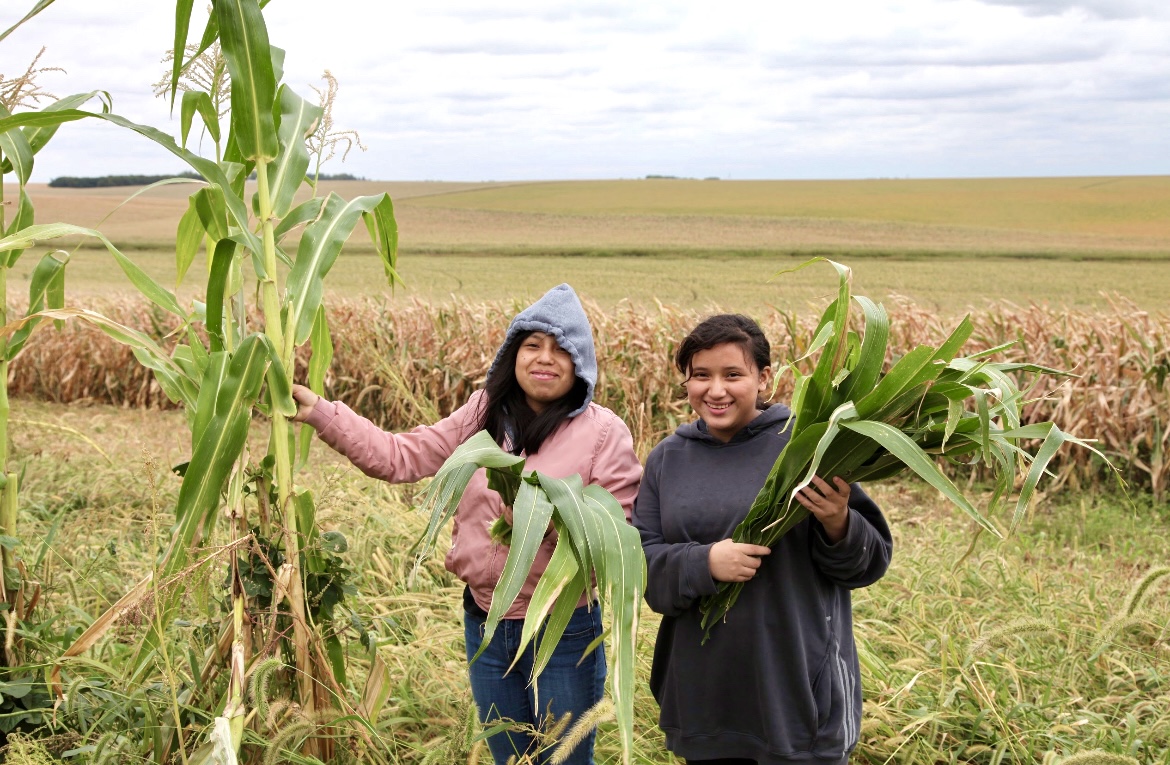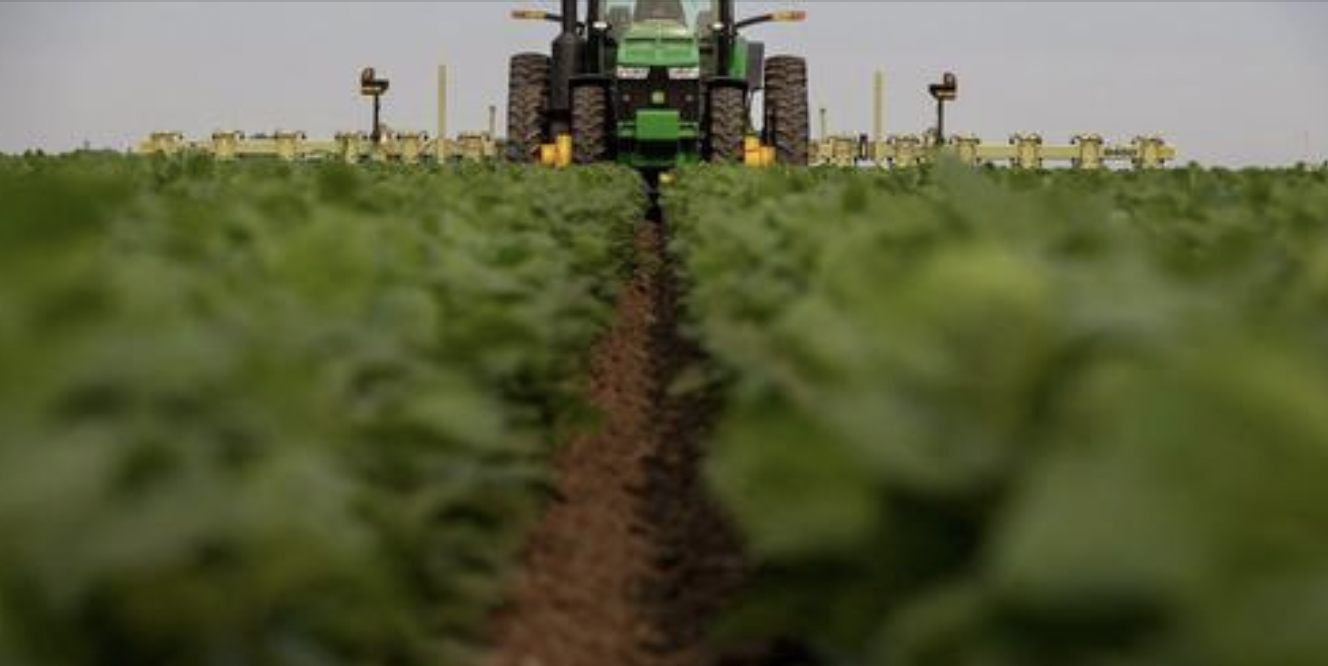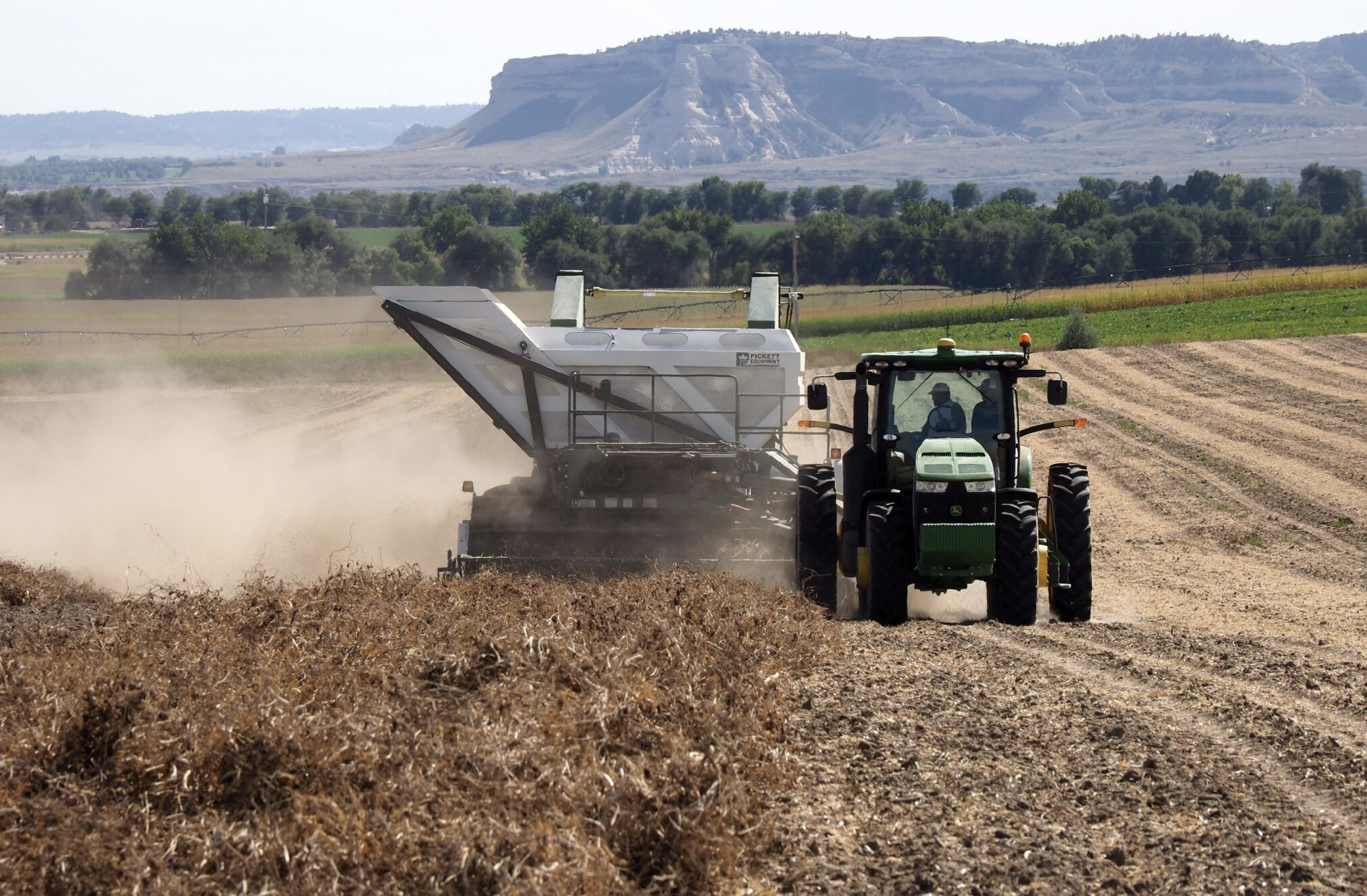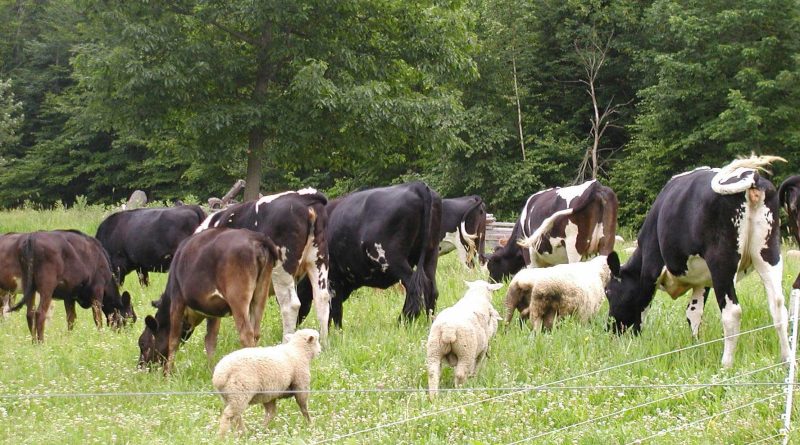In Burt County this summer, rows and rows of identical corn fields painted a familiar and quintessentially Nebraska landscape — until you reached a quarter of an acre of land teeming with a diversity of crops near Lyons, about 70 miles northwest of Omaha.
12-year-old Evelyn, who did not share her last name for privacy, crouched down in a small patch of budding plants on a Saturday morning in June. With pale blue plastic gloves on her hands, she yanked weeds out of the earth and left the varied leafy crops between them rooted.
“We’re looking for the ones that are thicker,” Evelyn said in Spanish. She was among 14 other youth and adults of Comunidad Maya Pixan Ixim in the field separating invasive weeds from budding vegetables for the First Acre Milpa summer program.





